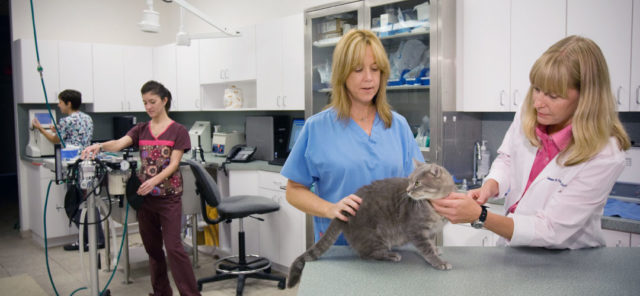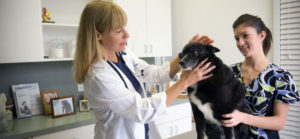

It probably won’t be a surprise to learn that cancer is the number one killer of older dogs and cats. Or that more than six million dogs alone are diagnosed each year in the United States, according to the National Cancer Institute (NCI).
Dogs get the disease at roughly the same rate as humans, and while cats get fewer cancers, they tend to be more aggressive.
What you may not know is that an increasing number of pet owners are fighting back on behalf of furry family members, using the same treatments that have been effective for humans. Drugs, immunotherapy, nutrition, chemotherapy and surgeries are used to cure the animal of its cancer or, if that’s not realistic, maintain the highest possible quality of life.
All species can get the type of abnormal cell growth that characterizes the following types of cancer:
- Lymphosarcoma
- Mast cell tumor
- Cancer of the spleen
- Cancer of the eyelid
- Liver cancer
- Bone cancer
- Cancer of the thorax
- Cancer of the bladder
- Cancer of the brain or spinal cord
- Oral cancer
Dogs have 35 times more skin cancer than do humans, four times as many breast tumors, eight times as much bone cancer, and twice the incidence of leukemia. Why?
It may be the result of them often sniffing the ground, where carcinogens, herbicides and pesticides may be present. Like humans, animals are impacted by exposure to second-hand smoke, which cats compound by licking their fur during grooming. Research also shows that obesity increases the possibility of being diagnosed with cancer.
One difference between the animal’s experience with cancer and our own is that sometimes the decision is made to not aggressively treat the disease. Decisions are made based on the pet’s age, long-term prognosis, and, sometimes, the owner’s financial situation. In those cases, the focus is on making sure the animal doesn’t suffer and is comfortable during its remaining days.
# # #

Dr. Stephanie Correa is the founder and lead oncologist at the Animal Cancer Care Clinic, one of the very few animal treatment centers in the United States dedicated exclusively to fighting cancer.
She works directly with families and veterinarians to offer diagnosis and treatment options, overseeing a full-service hospital in Fort Lauderdale and six clinics in South and Central Florida that provide high-quality, comprehensive, and compassionate care. Animal Cancer Care Clinic (www.animalcancercareclinic.com) features experienced specialists, ongoing clinical research trials, leading edge technology and equipment.












